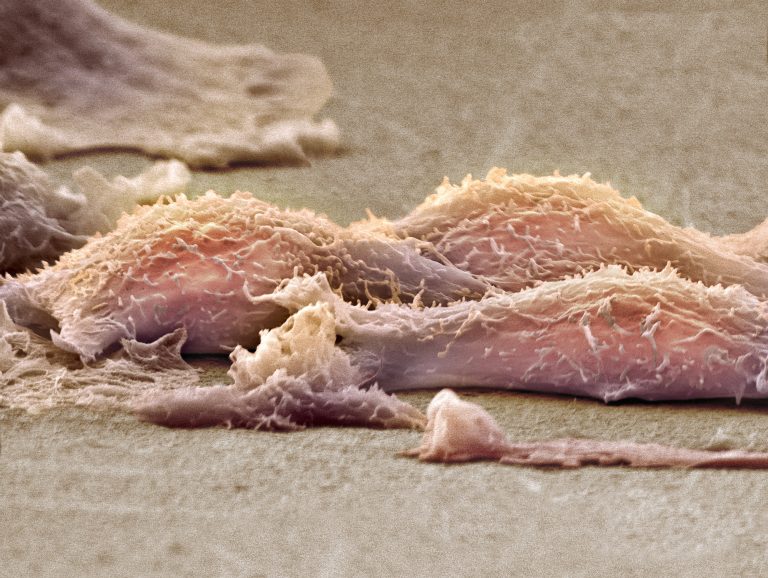
Researchers based at the University of North Carolina at Chapel Hill have discovered that the gene OTUD7A controls a cancer-causing protein in Ewing sarcoma, a type of bone cancer mostly impacting children.
The team also uncovered a compound that appears to be able to block the activity of the OTUD7A protein, which they hope could be a good drug candidate for treating this type of cancer.
Ewing sarcoma is relatively rare. Approximately 250 children and young people are diagnosed with this kind of bone cancer in the U.S. each year. Treatment with chemotherapy is available, but around half of those affected die from the disease, highlighting the need for more effective therapies.
Most individuals develop Ewing’s sarcoma due to a fusion oncogene known as EWS–FLI1 that arises due to a chromosomal translocation between the EWS and FLI1 genes. While this has been known for a while, the exact cancer-causing mechanisms involved have remained uncertain.
“Our primary research focus targeted the EWS-FLI1 fusion protein found in about 85 percent of Ewing sarcoma patients,” said Pengda Liu, Ph.D., assistant professor of biochemistry and biophysics in the UNC School of Medicine and co-lead author. “This protein, made up of pieces of two other proteins, is unique to Ewing sarcoma and only produced in cancer cells, making it an excellent target for treatment.”
As reported in the journal Advanced Science, Liu and colleagues discovered that two proteins — SPOP and OTUD7A – control EWS–FLI1 protein turnover in Ewing sarcoma.
While SPOP degrades the EWS–FLI1 oncoprotein, OTUD7A deubiquitinates and stabilizes it. The researchers found that lowering OTUD7A levels in human cell lines and in a mouse model reduced levels of EWS–FLI1 and slowed growth of cancerous cells.
The researchers then collaborated with a company called Atomwise to search for small molecules that could target OTUD7A. Using an AI program called AtomNet, four million possible molecules were screened.
The screen resulted in a candidate compound being identified, which the researchers call 7Ai, which showed potential to inhibit the OTUD7A protein.
When Liu and team tested it on mice with Ewing sarcoma, it reduced tumor formation and did not appear to be toxic. “Treatment with 7Ai could provide a new targeted therapeutic option for patients who become resistant to chemotherapy. Developing an effective drug will require more lab work and then clinical studies, however,” said Liu.
The research team is now working with collaborators to improve the potency and specificity of 7Ai before progressing drug development further.
“Additional medicinal chemistry studies are needed to further improve its potency and to evaluate pharmacokinetic and side effect properties,” write the authors.
“Since therapy for initial and relapsed Ewing sarcoma includes cytotoxic chemotherapies, it would be of interest to evaluate the combination of 7Ai with active chemotherapeutic drugs, including the treatment of patients with metastatic disease.”













